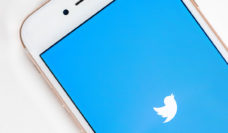These days, discussions about health misinformation (defined here as, false content that is intentionally, unconsciously, or mistakenly circulated) are usually focused on anti-vaccine content. This is important because an increase in anti-vaccine sentiments has paralleled an increase in outbreaks of vaccine preventable diseases like measles in the United States. Social media platforms such as Facebook, Instagram, Youtube, and Pinterest are taking steps to curb the spread of anti-vaccine postings on their platforms, as they should.
But there are other types of misinformation that we encounter almost daily. If you watch television or use social media, you have probably come across advertisements for miracle cures, life-changing dietary supplements, or fast weight loss schemes. These false and unverified claims can influence our daily decisions and can have negative effects on the public’s health.
Misinformation can be acute or chronic. A claim that eating nothing but meat will lead to rapid weight loss is acute since it can be easily corrected by health authorities sharing facts to the contrary. In contrast, chronic misinformation is usually linked to personal or cultural beliefs or norms, and is therefore more difficult to remedy even when there is data to the contrary.
The motives for sharing misinformation vary. Some share false content without being aware of its inaccuracy. Others intentionally circulate false content to confuse, mislead, or for financial gain. And others feel that it is their obligation to share these content because they truly believe the evidence is wrong and their emotions or anecdotes are an important revelation that will save others.
While tech companies, social scientists, and public health officials are seeking solutions to address the spread of anti-vaccine messages on social media platforms, we must think broadly about the potential impacts of other types of misinformation that influence daily health decisions.
Recognizing that misinformation can have negative impacts on the public’s health is one thing. Addressing and limiting the impact of misinformation is challenging for many reasons. For one, studies suggest that false information spreads more quickly than truth on social media platforms. And the way misinformation or rumors spread on social media varies by topic. For example, actors generating misinformation on diet and exercise, might differ from those spreading anti-vaccination messages. The spread of anti-vaccine content is aided by bots and trolls, while major contributors of diet and exercise misinformation might include companies, celebrities, and social media influencers. Another reason why limiting misinformation content is challenging is that claims are not always explicitly stated but the information is presented in a way that allows individuals to draw unsafe conclusions.
For example, the following tweet claims that a proprietary juice drink may be used to treat arthritis:
“What is arthritis? Arthritis is a broadly used term to define various kinds of joint pains and inflammation. Click here to read more #bodycleanse #detoxprogramme #Food #fitness #diet #smoothie #juicing #gym #drinks #health”
Here is another example claiming that CBD oil is a cure for all ailments:
“Raise your level of awareness It’s critical to healing #cbdoils #naturalhealing #plantmedicine #HBN #essentialoils #Ayuvadic #HBNaturals #hempoil #cbd #cbdoil #hemp #health #cbdheals #cbdlife #cannabidiol #wellness #organic #cbdoil #cbdcures”
To limit the spread of misinformation, we have to first identify a particular message as misinformation. This is easier for certain types of health misinformation (such as anti-vaccine messages) than others. The types of misinformation that push behavioral changes with promises of improved health might require expert–such as a nutritionist’s–opinion. These content are usually partially accurate (e.g., beetroots have health benefits) but the framing and claims are inaccurate (e.g., beetroots can cure all types of joint pain and inflammation).
While tech companies, social scientists, and public health officials are seeking solutions to address the spread of anti-vaccine messages on social media platforms, we must think broadly about the potential impacts of other types of misinformation that influence daily health decisions. We don’t want our sisters, daughters, and mothers to believe that inserting jade eggs into their vaginas will fix hormonal problems.
The Twitter data were collected by Nina Cesare
Photo by Elijah O’Donnell on Unsplash














